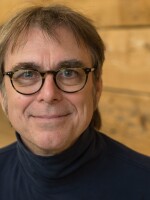Most of us are familiar with honey bees and bumblebees, but did you know there are around 300 species of wild bees in Vermont? These insects depend on pollen as their food source, which also means they spread this pollen between plants. Our agricultural system, our food, is dependent on wild bees. With several species in decline, it's important that we maintain and perserve their populations.
In this month's episode of Outdoor Radio, Kent McFarland and Sara Zahendra visit the University of Vermont Horticulture Farm. With the help of Leif Richardson, a consultant with Stone Environmental and a researcher at UVM, they are looking for various varieties of Vermont wild bees and bumblebee queens in particular, which are just now emerging from hibernation to feed, pollinate and nest.
Pollinators are right under our noses! So many of these bees pass through our gardens and nest in our backyards, even in highly-populated areas. Learn how to tell the difference between wild bees and other flying insects. You'll be able to spot their nests and burrows just about everywhere. Learn how to use a bee box to help the wild bee population and aid in pollinating crops.
Visit these links to learn more:
- Volunteer for the Vermont Wild Bee Survey
- Learn about the Vermont Bumble Bee Atlas
- Bee Basics: An Introduction to Our Native Bees
- Wild Pollinators of Eastern Apple Orchards and How to Conserve Them
- Xerces Society - Pollinator Conversation Resources - Northeast
- Discover bees and other wildlife in you area and report them to the Vermont Atlas of Life on iNaturalist.
Outdoor Radio is produced in collaboration with the Vermont Center For Ecostudies.





